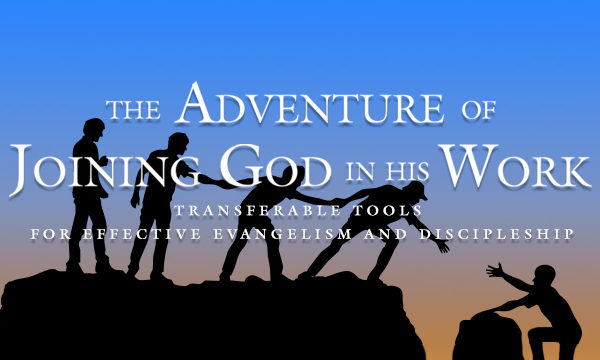Back to series

February 2013
In his book, Mere Christianity, C. S. Lewis points out that it is easy to love the likeable. However, the virtue of “charity” comes by choosing to act lovingly toward the unlikeable. Lewis writes,
. . .'Charity' now means simply what used to be called 'alms'—that is, giving to the poor. Originally it had a much wider meaning. . . Charity means “Love, in the Christian sense.” But love, in the Christian sense, does not mean an emotion. It is a state not of the feelings but of the will; that state of the will which we have naturally about ourselves, and must learn to have about other people.
I pointed out in the chapter on Forgiveness that our love for ourselves does not mean that we like ourselves. It means that we wish our own good. In the same way Christian Love (or Charity) for our neighbours is quite a different thing from liking or affection. We “like” or are “fond of” some people, and not of others. It is important to understand that this natural “liking” is neither a sin or a virtue, any more than your likes and dislikes in food are a sin or a virtue. It is just a fact. But, of course, what we do about it is either sinful or virtuous.
 Natural liking or affection for people makes it easier to be “charitable” towards them. It is, therefore, normally a duty to encourage our affections—to “like” people as much as we can (just as it is often our duty to encourage our liking for exercise or wholesome food)—not because this liking is itself the virtue of charity, but because it is a help to it. . . .
Natural liking or affection for people makes it easier to be “charitable” towards them. It is, therefore, normally a duty to encourage our affections—to “like” people as much as we can (just as it is often our duty to encourage our liking for exercise or wholesome food)—not because this liking is itself the virtue of charity, but because it is a help to it. . . .
. . . The rule for all of us is perfectly simple. Do not waste time bothering whether you “love” your neighbour; act as if you did. As soon as we do this we find one of the great secrets. When you are behaving as if you loved someone, you will presently come to love him. If you injure someone you dislike, you will find yourself disliking him more. If you do him a good turn, you will find yourself disliking him less. .
Consequently, though Christian charity sounds a very cold thing to people whose heads are full of sentimentality, and though it is quite distinct from affection, yet it leads to affection. The difference between a Christian and a worldly man is not that the worldly man has only affections or “likings” and the Christian has only “charity.” The worldly man treats certain people kindly because he “likes” them: the Christian, trying to treat every one kindly, finds himself liking more and more people as he goes on--including people he could not even have imagined himself liking at the beginning.1
As Valentine’s Day approaches, let’s not waste time on cheap talk about “love,” let’s act lovingly toward all, including those we don’t naturally like. And as we do, we might be surprised to discover we’ve grown to like them.
Jesus says, “But I say to you, Love your enemies and pray for those who persecute you, so that you may be sons of your Father who is in heaven… For if you love those who love you, what reward do you have? Do not even the tax collectors do the same? And if you greet only your brothers, what more are you doing than others? Do not even the Gentiles do the same?”
MATTHEW 5:44-47 (ESV)
1 C. S. Lewis, Mere Christianity (New York: Touchstone, 1996), pp. 115-117.
 COPYRIGHT: This publication is published by C.S. Lewis Institute; 8001 Braddock Road, Suite 301; Springfield, VA 22151. Portions of the publication may be reproduced for noncommercial, local church or ministry use without prior permission. Electronic copies of the PDF files may be duplicated and transmitted via e-mail for personal and church use. Articles may not be modified without prior written permission of the Institute. For questions, contact the Institute: 703.914.5602 or email us.
COPYRIGHT: This publication is published by C.S. Lewis Institute; 8001 Braddock Road, Suite 301; Springfield, VA 22151. Portions of the publication may be reproduced for noncommercial, local church or ministry use without prior permission. Electronic copies of the PDF files may be duplicated and transmitted via e-mail for personal and church use. Articles may not be modified without prior written permission of the Institute. For questions, contact the Institute: 703.914.5602 or email us.
-
Recent Podcasts
Reasoning Requires Faith – Jeffrey Geibel’s Story
by Jeffrey Geibel on July 4, 2025What happens when the pursuit of intellectual certainty...Read More
-
Fix Your Eyes Upon Jesus
by Steven Garber, Aimee Riegert on June 27, 2025
-
An Honest Search for God – Dr. Jay Medenwaldt’s Story
by Jana Harmon, Jay Medenwaldt on June 20, 2025
-
Recent Publications
Are Miracles Possible
by Christopher L. Reese on June 1, 2025The 21st century has provoked many conversations and...Read More
-
Is God Just, Not Fair?
by Jennifer Rothschild on May 15, 2025
-
Seeking Dietrich Bonhoeffer
by Joseph A. Kohm on April 29, 2025
0
All Booked
0.00
All Booked
0.00
All Booked
24720
The Adventure of Joining God in His Work Live Online Small Group 7:00 PM CT
https://www.cslewisinstitute.org/?event=the-adventure-of-joining-god-in-his-work-live-online-small-group-700-pm-ct&event_date=2025-09-16®=1
https://www.paypal.com/cgi-bin/webscr
2025-09-16

Next coming event
Days
Hours
Minutes
Seconds
The Adventure of Joining God in His Work Live Online Small Group 7:00 PM CT
On September 16, 2025 at 7:00 pmSpeakers

C.S. Lewis Institute
Author
Team Members
C.S. Lewis Institute
Author
C.S. Lewis Institute, in the legacy of C.S. Lewis, works to develop wholehearted disciples of Jesus Christ who will articulate, defend, share, and live their faith in personal and public life. Founded in 1976 by Dr. James Houston and James R. Hiskey, the Institute provides leading teachers who address important issues of the day from the perspective of Biblical orthodoxy, while also providing discipleship for individuals in small groups.





